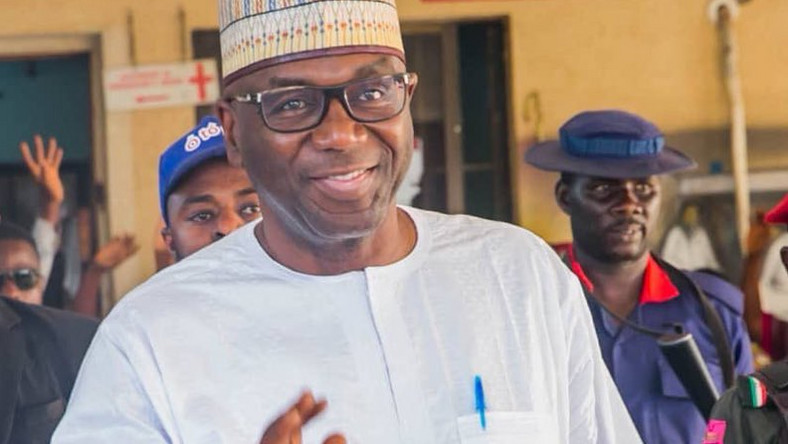Kwara Governor inaugurates Community Policing Committee
Date: 2020-08-26

The Kwara State Governor, AbdulRahman AbdulRazaq has inaugurated the state Community Policing Advisory Committee (CPAC) to herald the commencement of the initiative in the state.
Governor AbdulRazaq restated his commitment to making Kwara inhabitable for criminal elements.
He however stated that the success of the initiative would depend on everyone offering their support for all efforts to combat crimes.
"I believe that community policing is an idea that is long due as our country tackles varying security challenges. It focuses more on using intelligence and constant interactions with the community folks to prevent crimes. However, what this means is that the success of this idea lies in everybody seeing security as our collective business, "Governor AbdulRazaq said at the inauguration of the committee in Ilorin, the state capital.
Quoting authorities on the idea of community policing, the Governor said; "the central goal of it is for the law enforcement agencies to build relationships with communities with a view to creating partnerships and strategies to curb crimes and disorder."
"In February this year, our administration held a multi-stakeholder security dialogue on strengthening the existing security architecture in the state and exploring community initiatives. While recommendations from the dialogue have shaped our approach to security issues, this advisory committee will serve as another platform to engage local communities on matters of safety," he said.
The Governor said; "Members of this committee are hereby assured of our cooperation and support to make the take off of community policing a huge success in Kwara State. Our security team will constantly engage with the Advisory Committee to strengthen cooperation with the Kwara communities to build mutual trust and create an environment that is hostile to crimes."
The State Advisory Committee majorly comprises Head of the State Traditional Council (Chairman); the police commissioner (Co-chairman); heads of the various security agencies in the states; heads of Police Community Relations Committee; representatives of each senatorial district; and a representative each of the Nigerian Supreme Council for Islamic Affairs (NSCIA) and the Christian Association of Nigeria (CAN).
The Inspector General of Police, IGP, represented by the AIG zone 8, comprising Kwara, Kogi and Ekiti States, Yakubu Babas, noted that the myriad of challenges in security, call for a multifaceted approach to policing, hence the adoption of Community Policing Policy as an approach to issues of crime and criminality in Nigeria and Kwara state in particular.
According to him, the inauguration of the state Advisory Committee and the state committee will kick start the proper implementation of the policy.
AIG Babas who described Governor Abdulrazaq as a police friendly governor, said the membership of the Advisory Committee are made up of seasoned community and corporate personalities, whose wealth of experience would bring to bear on the proper direction and guide in implementation of the objectives, which among others is to improve the quality of life for everyone in the community.
The State Police Commissioner, Kayode Egbetokun said; "Community policing best suits our environment now because of the principle driving it, is basically an enforcement based approach that actively enables the participation of the public in their security arrangements, crime control and seeks to improve relationship between the police and the public."
"Let us all be committed to the goal of the committee which is to sit together and find solutions to crime problems in the state," he said, commending the Governor for his continuous support for the police and other security agencies in the state.
"The crime industry is getting bigger and more sophisticated by the day, unfortunately, its only products are criminals terrorising and causing insecurity in our communities," Egbetokun added.
He, however, urged members of committee not to put their respective interests above the interest of the committee but provide solutions to criminal activities in the state.
Source



